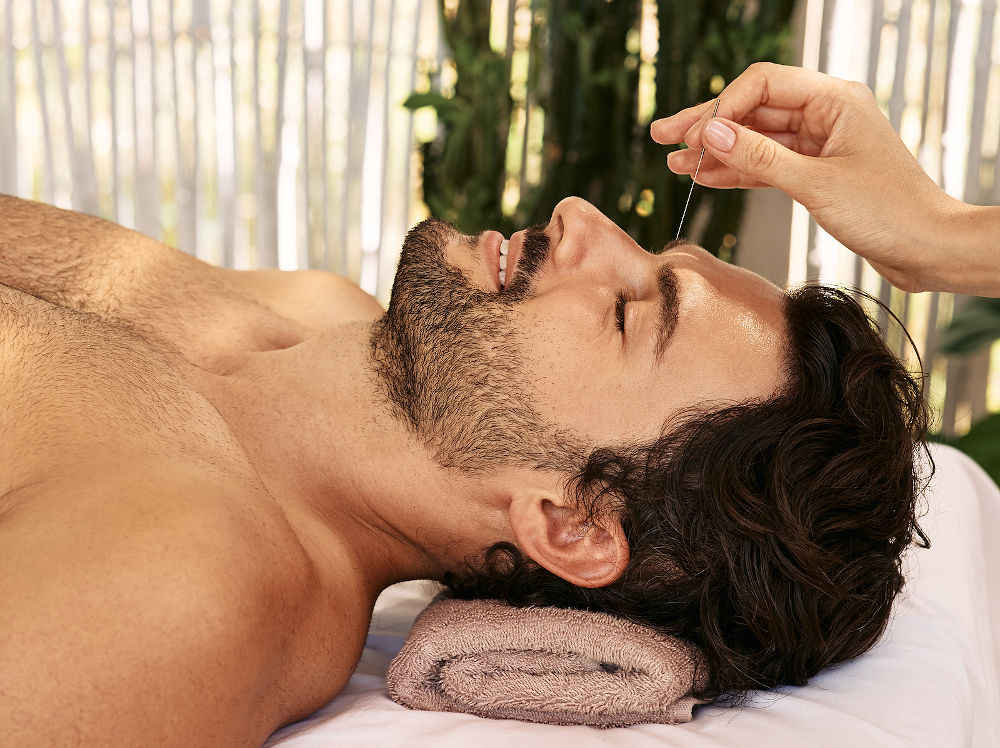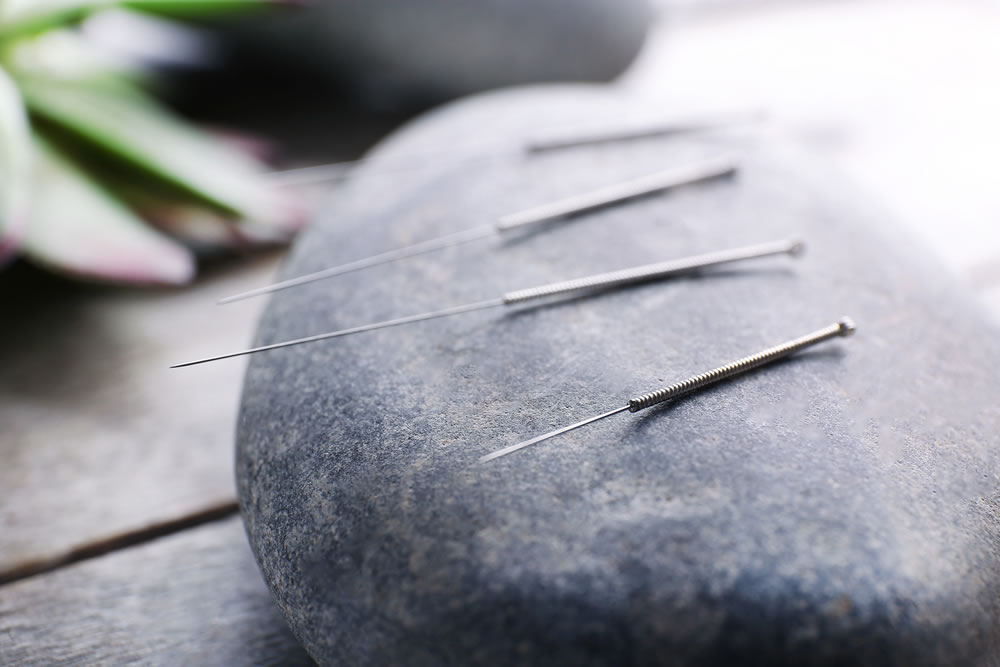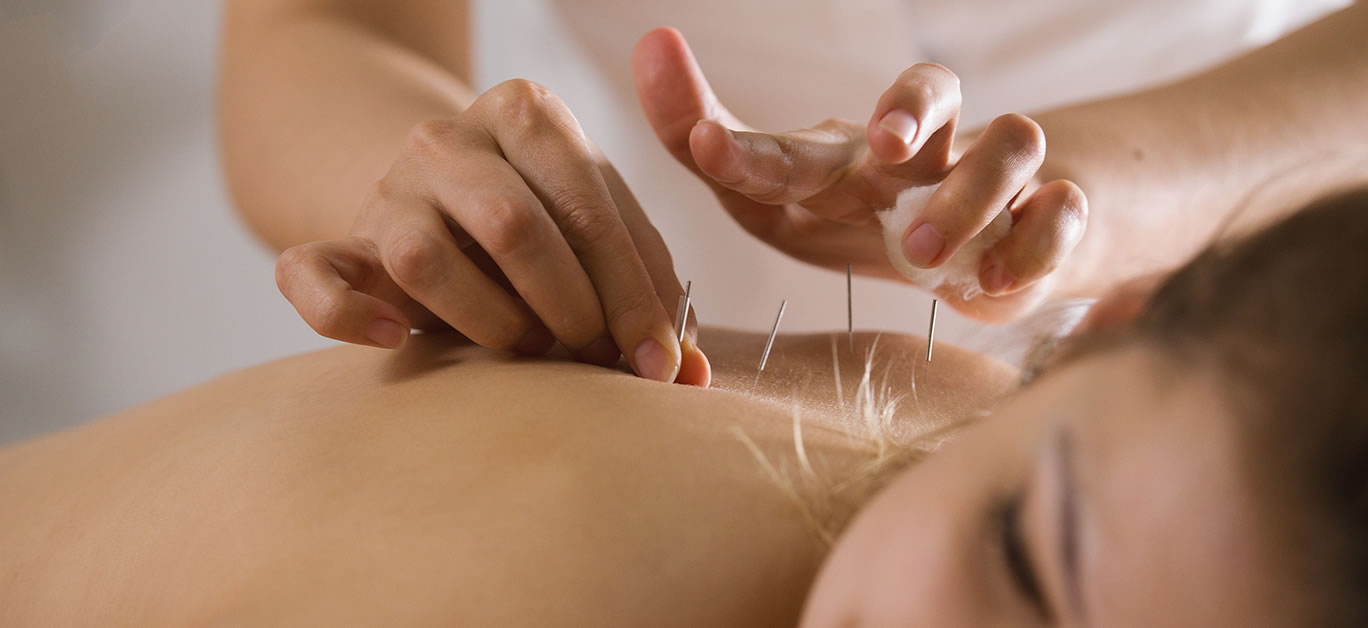The ancient Chinese medicinal practice of acupuncture is a technique that has a long history behind it, and around the world is used by many to help ease both mental and physical symptoms of a variety of different health conditions. Originally used primarily as a means of providing pain relief, it is now the first port of call for those seeking to improve their overall wellness, and from stress management to easing anxiety, its benefits, it seems, are many.
According to traditional Chinese medicine, the process – which involves the insertion of a series of thin needles into the surface of the skin – works by balancing the flow of energy, or life force, of patients. Known as ‘chi’, this energy is believed to pass through the body’s meridians, and by targeting certain points along these pathways, it is possible to return the body to equilibrium.
That said, some western practitioners have a different take on acupuncture, and believe that the insertion of the needles serves to stimulate the nerves, muscles and connective tissues to trigger the release of the body’s natural pain relievers – known as endorphins.
So, what can acupuncture treat? The answer is a wide variety of ailments, ranging from joint and chronic back pain to gastrointestinal issues, anxiety and allergies. For those looking for a natural alternative to prescription and over-the-counter medicines, this holistic approach is certainly worth a try – but sadly, many people still don’t fully understand the benefits of this ancient therapy, and it remains, amongst mainstream circles, somewhat misunderstood.
If you’re still unclear on whether this interesting alternative therapy is for you, then the plethora of inaccurate information in the ether might be making it difficult to draw a conclusion – so here, we debunk some of the common myths surrounding acupuncture and get to the facts.

1. Acupuncture doesn’t work
Alternative therapies like acupuncture often require several sessions before patients start to see the benefits, and consistency and regularity are key. While popping a couple of Paracetamol might provide instant relief for that back pain or headache, acupuncture takes a gentler and more subtle approach, and you may need to return to your therapist over a few sessions to start reaping the rewards.
Every acupuncture patient presents with a different case, and will also likely report varying results – but nevertheless, countless studies have convincingly demonstrated the effectiveness of this ancient form of traditional Chinese medicine, with some significant results reported in those who undergo regular treatment.
Interestingly, even a particular study on breast cancer patients showed promising results with acupuncture treatment. In most cases, breast cancer patients received AIs (aromatase inhibitors) during treatment. Some breast cancer patients who were given acupuncture treatment while still taking AIs reported a marked decrease in the joint pain they experienced as a major side-effect of the medication.
Other major ailments where acupuncture has proven effective include knee pain, neck pain, headache, migraine.
2. Acupuncture requires dealing with painful needles
Many people who might benefit from acupuncture are put off when they hear that it involves needles – but whilst it’s true that the treatment does require the express use of needles, in most cases it is far from painful. In actual fact, acupuncture sessions are widely reported to offer a relaxing experience – so much so that many patients fall asleep..
The steel needles used in acupuncture are so fine that they are only about the width of a hair, and are often referred to as pins. These needles bear zero resemblance to the kind that are used for drawing blood, giving injections or even doing a spot of sewing – so there is no need to feel alarmed at the prospect of them.
Although you may feel a slight pinch when the pin is inserted or placed into your skin, a feeling of deep relaxation usually kicks in within minutes, and you’ll soon forget all about it.

3. Acupuncture is for combating chronic pain only
While it’s quite true that acupuncture does wonderfully well in aiding pain management, it certainly isn’t the only purpose it serves. Acupuncture has also proven effective in helping to ease symptoms associated with a variety of other conditions, including depression, migraines, gynaecological issues, stress, headaches and anxiety.
In fact, it’s difficult to find a condition that acupuncture can’t help with in some way, and while it isn’t a cure, it can make dealing with them day to day that little bit more manageable.
4. Acupuncture is a mysterious form of voodoo
There’s nothing magical or even mystical about acupuncture – it’s simply an ancient traditional Chinese medicine and, as mentioned, a clinical modality primarily designed to help balance the human body’s numerous interconnected systems.
It’s still not 100 per cent crystal clear exactly how acupuncture works to heal the human body, as several forms of research are still ongoing. These aim to explore the possibilities of neurochemical mechanisms and how they relate or contribute to acupuncture’s pain-alleviating effects, and will likely prove revealing once complete.
Acupuncture is thought to work efficiently by stimulating select nerves in the human body, which then transmit signals to the brain to release those all-important beta-endorphins and other pain-relieving hormones, which in turn, contribute substantially in helping to suppress chronic pain, boost mood, and increase levels of pleasure and happiness.

5. Becoming an acupuncturist doesn’t require any formal training
One of the reservations some might have about trying acupuncture is that therapists are not required to undergo any formal training in order to perform it, and while there are no legal training requirements in the UK, there are certainly accreditations that be obtained, so look out for these when choosing your practitioner.
Anyone who intends to become an acupuncture therapist and also become a member of the British Acupuncture Council (BAcC) in the UK must complete a three-year British Acupuncture Accreditation Board (BAAB) accredited course, while similarly, in the United States, students must attend a minimum of three years of graduate school before they are qualified.
These university and graduate school programmes must include studies that cover Asian bodywork, acupuncture points, practice management, needle technique, nutrition, ethics and western medicine – so suffice it to say that they are very thorough.
After graduating, students must gain plenty of experience in their chosen field of practice, and participate in several hours’ worth of in-depth clinical studies before they can start to offer the therapy themselves. Practitioners must also submit to continuous education and attend several classes to retain their certificates and licences, and must also pass the National Board Licensure Exams with flying colours.
With all of this being said, the professional title is not a protected title, so make sure to check out the British Acupuncture Council’s register for degree qualified acupuncturists to ensure you are getting a fully qualified acupuncturist and a safe treatment.
The bottom line
Acupuncture has plenty to offer patients of all kinds, and makes for an excellent non-pharmaceutical alternative to traditional pain medicines, as well as enhancing their effects in those who combine the two. And, with a wealth of other benefits spanning conditions of all kinds, it’s certainly worth a try if you’re looking for some extra help with managing your symptoms. With an experienced and highly-qualified therapist, you can rest assured you’ll be in safe hands – but be sure to do your homework first and choose carefully to ensure you’re going to be working with someone who is the right fit for you.






















